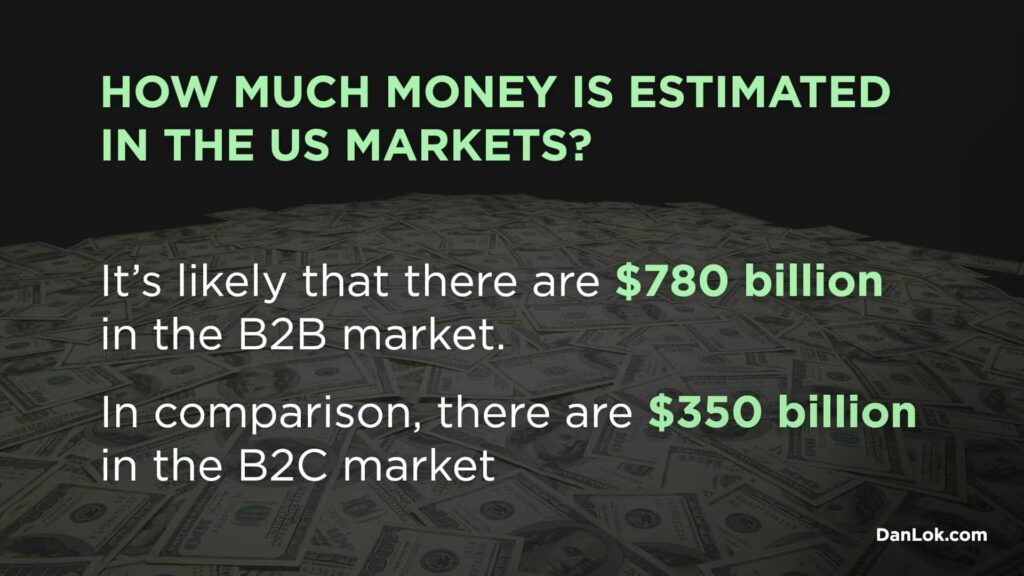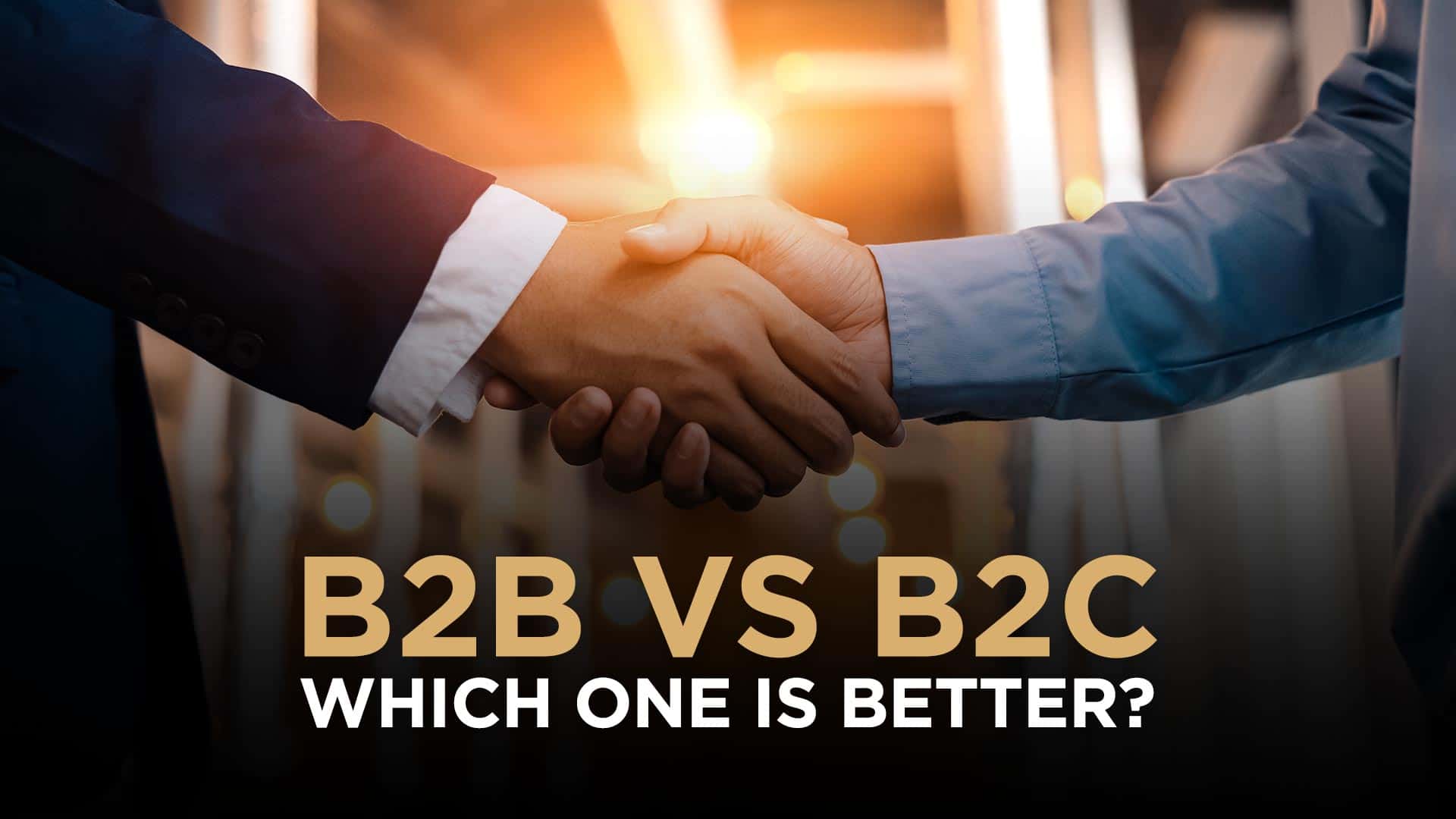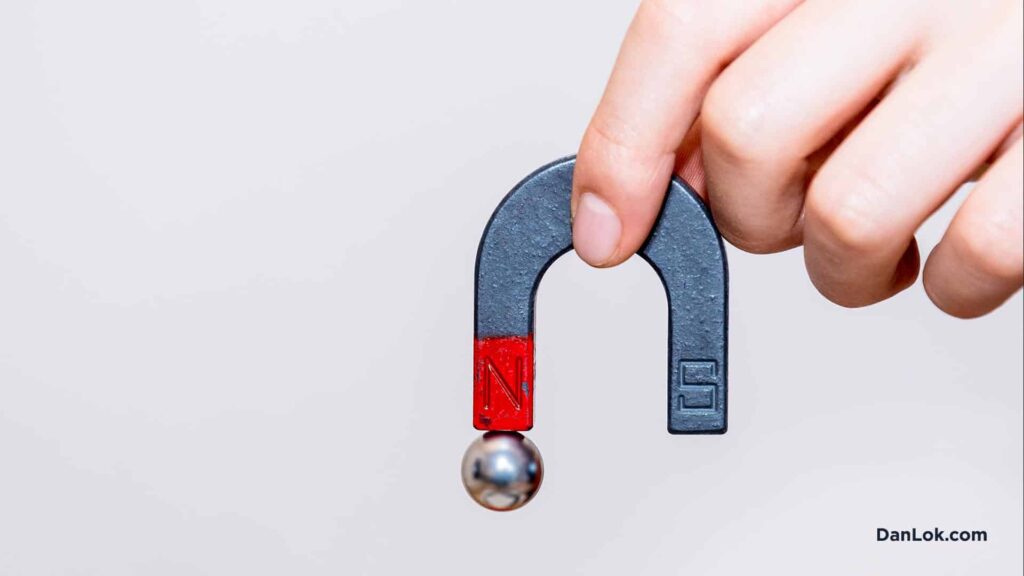When it comes to B2B vs B2C, which business model is better? Can you make more money selling your product or service to businesses, or to general consumers? If you are trying to decide which business model you should pursue, you might be wondering which one to choose: B2B vs B2C?
Which business model is more profitable and scalable? Where can you make more money and grow your business faster?
The short answer is that it depends. It depends on your background, your expertise, your knowledge, your specific set of skills, and what you’re offering the marketplace. It also depends on what you want for you and your business.
In general, for most people, it’s a little bit easier to start with B2C. Why? Because in your day-to-day life, you are a consumer, too. So, understanding what consumers want will come more naturally to you. Chances are, you face similar problems as other people do, and you understand what people need.
So, if you are just starting out, you might want to start in the B2C sector since it’s an easier place to start.
B2B, on the other hand, will be easier for you if you have plenty of experience working in a corporation. B2B is even easier if you’ve already built some relationships with other businesses.
For most people, I would say start with the B2C model. Then later, perhaps branch out into B2B.
If you possess the right skills, the B2B model can be incredibly profitable. Why? Because businesses usually have much more money to spend than the average consumer. Businesses have a much larger budget to pay premium prices.
You can make a lot of money in the B2C sector, too, but it requires you to first build a massive customer base. You need a lot of customers to make good money in the B2C sector. There is often more money in B2B, and with B2B, you don’t need as many customers to make good money, since you can charge higher prices.
As you’re now realizing, a lot of factors play into the decision when you’re deciding between B2B vs B2C for your business model. Below are some deeper insights into B2B vs B2C.
What Exactly Is The B2B Business Model?
B2B stands for business to business. That means your company is selling products or services to other companies. As you sell to other businesses, you have to understand one thing: The person buying from you doesn’t make the buying decision for themselves.
Rather, they are buying your product or service for their company. They are making the purchase on behalf of the whole organization, and their organization’s needs are being considered. Common B2B products are consulting services, customer relationship management systems, copywriting services, lead generation and many more. You see, a single customer probably wouldn’t need such products. But these types of products provide immense value for businesses.
What Exactly Is The B2C Business Model?
B2C stands for business to consumer. A consumer is a regular customer. So, you are selling to individuals. Your product would be designed and developed to solve the problems of everyday people.
In B2B, you could be selling anything from outerwear to toothbrushes to mattresses. Everybody needs those items, but there is also a lot of competition. That’s why B2C companies have to be creative in their marketing strategies, in an effort to stay on top of the market and ahead of their competition..
It Depends On Your Experience
If you start a business in a niche industry that you have personal experience in, chances are, you understand your customers very well.
As a B2C company, you could be selling a simple product on an e-commerce site. On your online store, you’re simply selling something that everybody uses. Starting such a business isn’t that expensive. It also doesn’t take a lot for you to advertise it on the internet. Advertise it through Facebook, Instagram, Google or other channels. You could even sell your product on Amazon. Just get in the game and make those first few sales. You might even consider going to Kickstarter and start a crowdfunding campaign. That way you can pre-sell your product before you even make it.
If you have a background in the corporate world a B2B business model might be for you. Let’s assume you worked in the human resource department, for example. You already gained some insights into that sector and chances are you built some relationships. Maybe now you want to branch out and start your own human resource agency. Then the B2B model might work for you. Why? Because you have some experience, you know some people and have been in the industry for some time.
B2B vs B2C: What Are The Similarities?
B2B and B2C businesses aren’t complete opposites. Actually, many businesses offer both B2B and B2C solutions.
Let me give you a perfect example. Let’s assume your company sells beverages. You could have a store where you sell beverages to individual customers. At the same time, you could also have contracts with businesses. Businesses would offer your drinks in their restaurants, cafeterias or in vending machines in their office buildings.
In such a case, you would have both a B2B and a B2C business strategy. More and more businesses are doing exactly that and do very well with both. It opens up an even bigger market for them.
B2B vs B2C: What Are The Key Differences?
Now, when it comes to B2B vs B2C there are some key differences that you should be aware of. What works perfectly in the B2C sector might not work at all in B2B. So, be very aware and make conscious choices about your business model. What are those key differences? Let’s have a look below:

Different Target Markets
The target market of B2B and B2C businesses are different. Generally speaking, the B2C market is a bit larger. Why is that? Yes, there are plenty of businesses out there that you could market to. However, you most likely have to specialize. You have to pick a certain niche and a certain vertical. Like the example I gave above – when you have relationships in human resources already, you could build up your business there. But here comes the important point: the product you offer might be extremely valuable for HR departments. But chances are, it wouldn’t work that well in other industries or other departments.
For B2B businesses, the market is often smaller and more specialized. But that also means you might be able to charge a higher price in the B2B sector. In fact, it’s estimated that the US B2B market is a 780 billion dollar market compared… Share on XStill, there are also plenty of very pricey B2C products. Think about luxury stores such as Prada, Gucci, and Hérmes. These are B2C businesses, but still have a high price tag. So, price isn’t the only key difference between B2B and B2C companies.
Different Customer Needs
In general, the target market for B2B is a bit more sophisticated. They want to be educated on your product or service, and you need to build personal trust with them. Remember, they are making the purchase decision for the whole organization. They don’t want to look stupid and make sure their decision actually makes sense. So if you educate them on how your product helps them, you have bigger chances of making a sale. They will also want to see that investing in your product makes financial sense for them. It has to save them time, make workflows easier or give them any other return on their investments.
B2C customers, on the other hand, want to be entertained rather than educated. So, you would heavily focus on your brand image. B2C customers usually don’t think about return on investment. They want to have a good time and enjoy a purchase from a cool brand.
Some people argue that B2B clients make rational decisions, while B2C prospects buy out of emotion. I would be careful with such assumptions, as I believe all buying decisions are emotional. But we justify it with logic later. That’s why for B2B, relationship building is so important.
Different Sales Cycle
A great distinction from B2B vs B2C is the sales cycle of your product.
First, let’s define what a sales cycle is. The sales cycle is the whole process of selling a product. From the first contact with a customer until closing the sale. The exact steps look different for every business.
In a physical retail store, for example, the sales cycle could be simple. The customer goes in, chooses a product from a rack, and pays. That’s it.
For B2B businesses, the sales cycle is usually longer compared to B2C. Your customers need more touchpoints with you before they are ready to buy. In general, B2B also takes longer because several people have to approve the buying decision. They have accounting departments that have to approve the purchase, and it’s also often a team decision. It can take some time until the purchase is approved internally.
You have to provide your B2B customers with a very clear understanding of the value of your product or service. Once they buy from you, however, they will likely stick with you. So, the B2B business is a lot about customer retention. Ideally, you keep them as a returning customer for a lifetime.
In the B2C business model, the focus is more on customer acquisition. The market is bigger and you want to reach a higher volume of people. Especially if your product is something that people need to buy only once. You need to generate new customers constantly.
B2C customers depend less on other people when making a purchase. The influence of friends and family might be increasing, but they don’t have to go through a whole command chain before making any purchase.
So when you compare B2B vs B2C in general, the sales cycle of B2B clients takes longer but they will likely stay with you. B2C requires to find new clients frequently. That’s why many B2C companies offer subscription models.
Different Marketing Strategies
You will need different marketing strategies for B2B vs B2C. Depending on who you want to sell to, you’ll develop a different marketing campaign. As I briefly touched on, B2B clients usually want to be educated. So you have carter informational content towards them. You probably have to “nourish” them before they would buy. That means to build a relationship with them and showing them in which way you add value to their lives.
In the B2C market, education can also be important but the customers are also looking for entertainment. They maybe don’t want to build a close relationship with your brand – sometimes they just want to buy their necessities and be done with it. This will greatly depend on your product.
When Is B2B Probably Better For You?
The B2B business model might work very well for you if you’ve worked in the corporate world before. Maybe you already got some insights on how big companies make buying decisions. Maybe you even know some problems that companies face. Then you could create a product that solves exactly that problem.
B2B might also work well for you if you like planning for the long-term and enjoy going into detail. As the sales cycle is longer in B2B you have to plan for the purchase in a long term view. Usually, you also would research your potential prospects and really find out their pain points.
When is B2C Probably Better For You?
Starting out as a B2C business might be easier, as you yourself are a customer, too. So you could create and sell products that you yourself would enjoy. To stay in the business, however, you will need the ability to keep customers engaged with you. You need some form of creativity to attract customers. If the idea to attract masses interests you, then B2C might be more suitable for you.
B2C customers may buy from you once but don’t immediately come back for more. They could be drawn to your competitors too. So you have to figure out how you can stay interesting and have them come back for more.
B2B vs B2C? It’s all P2P
As you see, the answer if a B2B or B2C business model is better can’t be answered easily. So many factors determine success. If you do it right, both can be very lucrative.
But no matter if you have a B2B or B2C business model, at the end of the day it’s all P2P: Person to Person. You have to remember that your customers aren’t just numbers on a screen. They are real human beings. If you understand why people buy, and how people buy, you will be able to close them on any deal.
You might be wondering, does this really apply to B2B businesses too? The truth is, it does. Because even big businesses are run by people. So if you know how to find out the needs and pain points of a person you can much more effectively communicate how your product can help them. Selling has a lot to do with emotions and psychology.
So which to choose B2B or B2C?
In conclusion, the decision between B2B and B2C business models is not a matter of which is definitively better, but rather which aligns best with your background, expertise, and goals.
While B2C may offer an easier entry point due to its broad consumer appeal, B2B holds the potential for substantial profitability, particularly for those with corporate experience and industry insights.
Regardless of the model you choose, understanding the nuances of your target market, their needs, and the art of effective selling is paramount.
What to do after deciding B2B or B2C?
Start to craft offers that align with your target audience’s unique characteristics, motivations, and purchasing behaviors. Consider to create high-ticket offers for your business.
High-ticket offer typically commands a higher price point but offers significant benefits, exclusivity, and results that make it compelling and desirable to potential buyers. High-ticket offer is good for business because it attracts high-value clients, increases revenue per sale, and strengthens the brand’s positioning in the market.
If you’re seeking to learn how to create high-ticket offers for your business, download the FREE “High Ticket Offer Formula™”. This will equip you with the strategies on crafting irresistible high-ticket offers, whether you’re engaging with businesses or consumers. Unlock new opportunities for growth and success.








